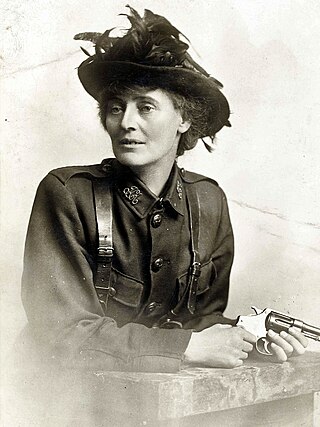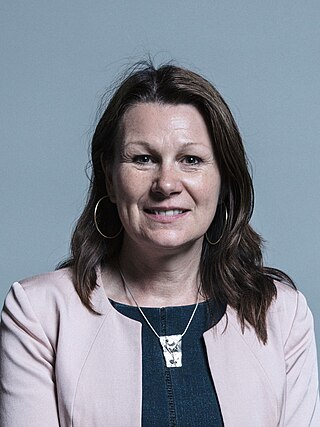
The Parliament of the United Kingdom of Great Britain and Northern Ireland is the supreme legislative body of the United Kingdom, and may also legislate for the Crown Dependencies and the British Overseas Territories. It meets at the Palace of Westminster in London. Parliament possesses legislative supremacy and thereby holds ultimate power over all other political bodies in the United Kingdom and the Overseas Territories. While Parliament is bicameral, it has three parts: the sovereign, the House of Lords, and the House of Commons. The three parts acting together to legislate may be described as the King-in-Parliament. The Crown normally acts on the advice of the prime minister, and the powers of the House of Lords are limited to only delaying legislation.

The United Kingdom is a constitutional monarchy which, by legislation and convention, operates as a unitary parliamentary democracy. A hereditary monarch, currently King Charles III, serves as head of state while the Prime Minister of the United Kingdom, currently Sir Keir Starmer since 2024, serves as the head of the elected government.

The 1997 United Kingdom general election was held on Thursday, 1 May 1997. The governing Conservative Party led by Prime Minister John Major was defeated in a landslide by the opposition Labour Party led by Tony Blair, achieving a 179-seat majority and a total of 419 seats.

The 1918 United Kingdom general election was called immediately after the Armistice with Germany which ended the First World War, and was held on Saturday, 14 December 1918. The governing coalition, under Prime Minister David Lloyd George, sent letters of endorsement to candidates who supported the coalition government. These were nicknamed "Coalition Coupons", and led to the election being known as the "coupon election". The result was a massive landslide in favour of the coalition, comprising primarily the Conservatives and Coalition Liberals, with massive losses for Liberals who were not endorsed. Nearly all the Liberal MPs without coupons were defeated, including party leader H. H. Asquith.

In the United Kingdom, a member of Parliament (MP) is an individual elected to serve in the House of Commons, the lower house of the Parliament of the United Kingdom.
Upon the dissolution of the 39th Canadian Parliament, 65 of the 308 seats were held by women. Canada ranks 45th in the world in representation of women in the national lower house.
The 40th Canadian Parliament contained a record number of female Members of Parliament, with 69 women elected to the House of Commons of Canada in the 2008 federal election. However, this represented just 22 per cent of the 308 total MPs, and only a modest gain over the 65 women in the 39th Canadian Parliament.
All-women shortlists (AWS) is an affirmative action practice intended to increase the proportion of female Members of Parliament (MPs) in the United Kingdom, allowing only women to stand in particular constituencies for a particular political party. Labour abandoned the shortlist for general election purposes in March 2022. Political parties in other countries, such as South Korea and various Latin American countries, have used practices analogous to AWS, especially in relation to government sex quotas.

The representation of women in the House of Commons of the United Kingdom has been an issue in the politics of the United Kingdom at numerous points in the 20th and 21st centuries. Originally debate centred on whether women should be allowed to vote and stand for election as Members of Parliament. The Parliament Act 1918 gave women over 21 the right to stand for election as a Member of Parliament. The United Kingdom has had three female Prime Ministers: Margaret Thatcher (1979–1990), Theresa May (2016–2019), and Liz Truss (2022). The publication of the book Women in the House by Elizabeth Vallance in 1979 highlighted the under-representation of women in Parliament. In more modern times concerns about the under-representation of women led the Labour Party to introduce and, decades later, abandon all-women short lists, something which was later held to breach discrimination laws.
The 41st Canadian Parliament includes a record number of female Members of Parliament, with 76 women elected to the House of Commons of Canada in the 2011 election. This represents a gain of seven seats over the previous record of 69 women in the 40th Canadian Parliament. By contrast, the 112th United States Congress had 72 women sitting in the 435-seat United States House of Representatives, and the 113th United States Congress has 81.

Susan Mary Hayman, Baroness Hayman of Ullock is a British politician and life peer who has served as Parliamentary Under-Secretary of State for Environment, Food and Rural Affairs since July 2024. A member of the Labour Party, she was Member of Parliament (MP) for Workington from 2015 to 2019. Hayman served as an Opposition Whip from 2015 to 2016 and Shadow Minister for Flooding and Coastal Communities from 2016 to 2017, then as Shadow Secretary of State for Environment, Food and Rural Affairs from 2017 to 2019 and was appointed to the House of Lords in 2020.
The 42nd Canadian Parliament includes a record number of female Members of Parliament, with 88 women elected to the 338-member House of Commons of Canada (26%) in the 2015 election. This represents a gain of twelve seats over the previous record of 76 women in the 41st Canadian Parliament. By contrast, the 114th United States Congress had 105 women sitting in the 435-seat United States House of Representatives.

This is a list of women who stood in general elections to the Parliament of the United Kingdom up to and including the 1945 general election.

3,303 candidates stood in the United Kingdom general election of 2017, which was held on 8 June 2017. The deadline for parties and individuals to file candidate nomination papers to the acting returning officer was 16:00 on 11 May 2017.
The first women in the House of Lords took their seats in 1958, forty years after women were granted the right to stand as MPs in the House of Commons. These were life peeresses appointed by the Prime Minister, although countesses had appeared in medieval times.


































